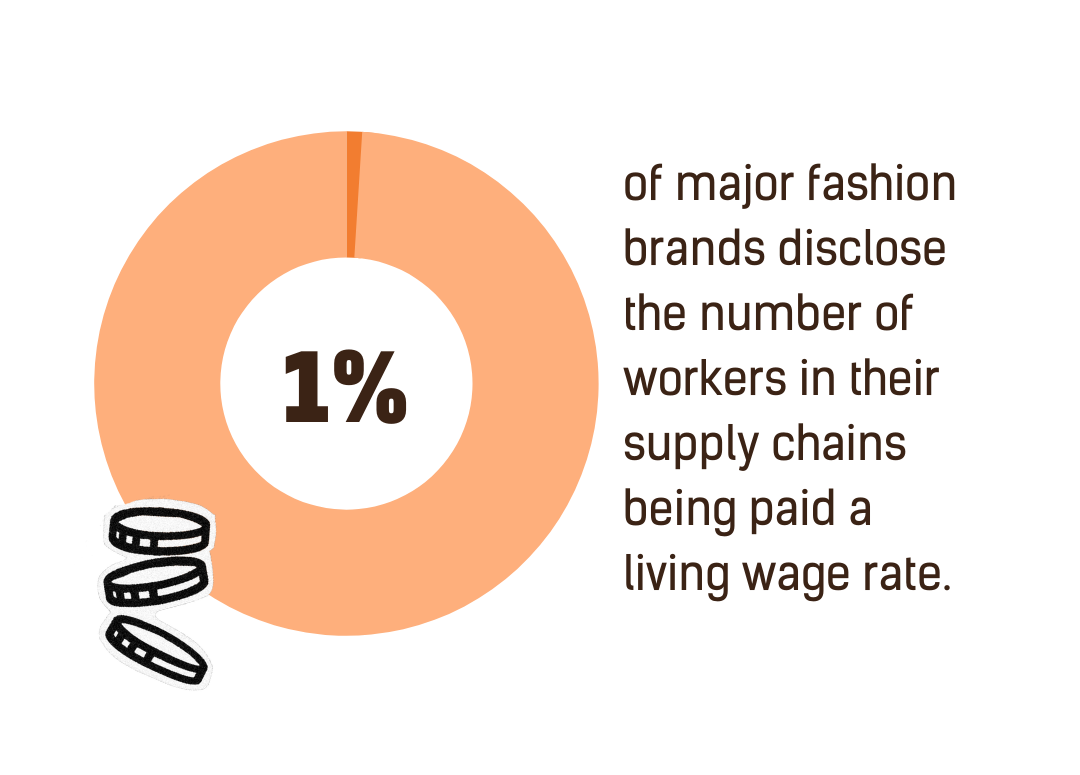Concerta, a commonly prescribed medication for attention deficit hyperactivity disorder (ADHD), has been facing a shortage in recent times, leaving patients and healthcare providers puzzled. Understanding the reasons behind the Concerta shortage is crucial for individuals relying on this medication to manage their ADHD symptoms effectively. This blog will delve into the factors contributing to this puzzling issue. Several key factors are at play, from supply chain disruptions to increased demand. Join us as we uncover the complexities surrounding the Concerta shortage and explore potential solutions to ensure continued access to essential ADHD treatment.
Join us for an hour of insights on diversifying donation streams with Sonia Mehrmand (Shortage), Ricky Chilcott (Causey by Mission Met). and Chelsea Paul (Daffy).
Mark your calendars for Feb 28th, 12-1pm PST.
Secure your spot here [https://t.co/Eg8WNalCdL] pic.twitter.com/j9SAGylEEI— Shortage (@ShortageGlobal) February 28, 2024
Introduction: Understanding the Impact of the Concerta Shortage
As we delve into the realm of pharmaceuticals, one of the pressing questions that arise in the minds of patients, healthcare providers, and stakeholders is why there is a Concerta shortage. Understanding the implications and consequences of this scarcity is crucial in comprehending its ripple effects on individuals relying on this medication.
The Root Causes
Several factors contribute to the shortage of Concerta in the market today. These may include supply chain disruptions, regulatory issues, and increased demand.
Impact on Patients
The scarcity of Concerta can have detrimental effects on patients who depend on this medication to manage conditions like ADHD. The inability to access their prescribed medication can lead to disruption in treatment, withdrawal symptoms, and increased anxiety.
- Patients may be forced to switch to alternative medications
- Long-term adherence and treatment outcomes may be compromised
- Increased financial burden on patients due to higher costs of alternatives

Factors Contributing to the Concerta Shortage
Concerta, a popular medication for treating ADHD, has been facing shortages due to various contributing factors. One major reason is the increased demand for Concerta in recent years, which has led to supply chain challenges and manufacturing issues.
Supply Chain Disruptions
The intricate supply chain involved in producing Concerta can be disrupted by factors like natural disasters, transportation delays, or raw material shortages, causing production delays.
These disruptions can impact the availability of Concerta in pharmacies and medical facilities, leading to a shortage in the market.
Regulatory Changes
Changes in regulations related to the production and distribution of ADHD medications can also contribute to shortages of Concerta.
These changes may require manufacturers to comply with new guidelines, affecting their ability to maintain consistent production levels.
Increased Demand and Prescriptions
The rising number of ADHD diagnoses and subsequent prescriptions for Concerta have outpaced the supply available, resulting in shortages in certain regions.
Physicians prescribing Concerta are facing challenges in fulfilling patient needs due to the high demand for the medication.
Global Demand vs. Supply Chain Challenges
One of the pressing issues in the pharmaceutical industry in 2021 is the Concerta shortage. This shortage can be attributed to a complex interplay between global demand and supply chain challenges. The increased global demand for Concerta, a popular medication for ADHD, has put immense pressure on the existing supply chains.
Impact of Global Demand
The global demand for Concerta has been rising steadily, fueled by the increasing awareness and diagnosis of ADHD worldwide. Countries with larger populations and higher rates of ADHD diagnosis have witnessed a surge in the demand for this medication.
This surge in demand has strained the global supply chain, leading to shortages in various regions. Manufacturers are struggling to keep up with the pace at which Concerta is being prescribed, resulting in stockouts and delays in medication availability.
Challenges in the Supply Chain
The pharmaceutical supply chain faces numerous challenges that further exacerbate the Concerta shortage. Issues such as raw material shortages, transportation disruptions, and logistical hurdles have disrupted the smooth flow of Concerta from production facilities to pharmacies.
Moreover, the COVID-19 pandemic has introduced additional complexities, disrupting manufacturing operations and causing delays in regulatory approvals. These unpredictable factors have created a perfect storm, contributing to the current shortage of Concerta.

Regulatory Hurdles and Production Issues
One key reason behind the Concerta shortage is regulatory hurdles and production issues. Regulatory hurdles, such as licensing and compliance requirements, can pose significant challenges for manufacturers producing medications like Concerta. Additionally, production issues, such as supply chain disruptions, manufacturing defects, or quality control problems, can further exacerbate the shortage problem.
Impact of Regulatory Hurdles
The stringent regulations governing the production and distribution of medications can lead to delays in obtaining necessary approvals for manufacturing Concerta. This can slow down the overall production process, contributing to the shortagemedicines in the market.
- Delays in regulatory approvals for new manufacturing facilities
- Stringent quality control requirements
Challenges in Production
The complexity of Concerta’s manufacturing process can also result in production issues that impact the drug’s availability. Factors such as raw material shortages, equipment malfunctions, and unexpected disruptions in the production line can all contribute to delays in manufacturing the medication. *Image illustrating production challenges in the pharmaceutical industry.*
- Raw material shortages affecting production output
- Equipment malfunctions leading to production disruptions

Impact on Patients and Healthcare Providers
The ongoing Concerta shortage has had significant impacts on both patients relying on this medication for the management of attention deficit hyperactivity disorder (ADHD) and healthcare providers striving to meet the needs of their patients.
Challenges Faced by Patients
Patient access to Concerta has been severely affected, leading to disruptions in treatment plans and potential changes in medication regimens. This shortage raises concerns about patient well-being and stability in managing ADHD symptoms.
The strain on Healthcare Providers
Healthcare providers are tasked with navigating the shortage to ensure continuity of care for their patients. The need to find alternative medications or dosages adds complexity to treatment decisions, impacting patient outcomes and provider workload.
2022 Illustrative Image of Healthcare Providers Discussing Medication Shortage:
Potential Solutions and Mitigation Strategies
Given the ongoing **Concerta shortage**, it is crucial to explore potential solutions and mitigation strategies to address this concerning issue. The following strategy can help tackle the root causes and alleviate the impact of the shortage:
Enhanced Supply Chain Management
Improving **supply chain efficiencies** can play a vital role in ensuring an adequate stock of Concerta. Effective coordination among manufacturers, distributors, and retailers can help streamline distribution and prevent shortages.
Implementing **real-time inventory monitoring** systems can also enhance transparency within the supply chain, enabling prompt identification of potential shortages and facilitating timely interventions.
Regulatory Reforms and Diversification
**Regulatory reforms** aimed at reducing barriers to market entry for Concerta generic equivalents can foster increased competition and expand the availability of the medication. Diversifying the sources of Concerta production can further safeguard against supply disruptions.
Encouraging the **development of new generic versions** of Concerta can offer patients more options and reduce dependence on a limited number of suppliers, thereby enhancing resilience against shortages.
Educational Campaigns and Patient Awareness
**Educational campaigns** targeting healthcare professionals and patients can promote responsible prescribing practices and optimal medication use, potentially reducing unnecessary demand fluctuations that contribute to shortages.
Enhancing **patient awareness** about alternative treatment options and therapeutic substitutions can empower individuals to make informed choices during periods of scarcity, thereby mitigating the impact of the Concerta shortage.
Frequently Asked Questions
- What is Concerta?
- Concerta is a prescription medication used to treat attention deficit hyperactivity disorder (ADHD). It is a central nervous system stimulant that helps increase focus and reduce impulsivity and hyperactivity.
- Why is there currently a Concerta shortage?
- There may be a shortage of Concerta due to various reasons, such as increased demand, manufacturing delays, raw material shortages, or regulatory issues. The specific cause of the shortage can vary.
- How does the Concerta shortage impact patients?
- The Concerta shortage can impact patients who rely on this medication to manage their ADHD symptoms. It may lead to difficulties in accessing their prescribed treatment, potential changes in medication, or disruptions in their treatment plan.
- Is there an alternative to Concerta during the shortage?
- During a Concerta shortage, healthcare providers may recommend alternative medications such as other extended-release methylphenidate formulations or different ADHD medications like Adderall or Vyvanse. It is essential to consult with a healthcare professional for individualized recommendations.
- What can be done to address the Concerta shortage?
- To address the Concerta shortage, patients can communicate with their healthcare providers about the medication’s availability, explore alternative treatment options if needed, and stay informed about updates regarding the shortage. Healthcare providers and pharmacists can also work to manage the shortage by monitoring supply chains and informing patients of any developments.
Unlocking the Puzzle: Discovering the Reasons Behind the Concerta Shortage
In conclusion, the Concerta shortage is a complex issue influenced by various factors such as supply chain disruptions, increased demand, regulatory challenges, and production constraints. The global pandemic has only exacerbated these challenges, underscoring the importance of a resilient and adaptable pharmaceutical industry. Understanding the root causes of the shortage is crucial for stakeholders to collaborate on sustainable solutions, including enhancing production capacity, diversifying suppliers, and investing in alternative medications. As consumers and healthcare professionals navigate this shortage, proactive communication, resource management, and advocacy for regulatory improvements will mitigate the impact. By shedding light on the underlying reasons for the Concerta shortage, we pave the way for a more secure and efficient medication supply chain in the future.
